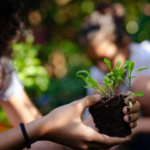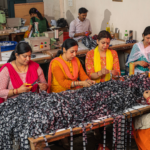Understanding the Importance of 'Think Before You Throw' The slogan 'Think Before You Throw' encapsulates a pivotal aspect of the Reduce, Reuse, Recycle (RRR) philosophy. At its core, this mantra urges individuals to be mindful of their waste disposal habits, recognizing the profound environmental impact of waste. Each item discarded carelessly contributes to the mounting issue of landfill overflow, pollution, and resource depletion. Thus, adopting a conscientious approach to waste management is not merely an environmental imperative but a civic responsibility. The environmental impact of waste is multifaceted. Landfills, often the final resting place for discarded items, emit harmful greenhouse gases like methane, contributing to climate change. Additionally, the degradation of waste in landfills can lead to soil and water contamination, affecting ecosystems and human health. The production and disposal of single-use plastics, in particular, exacerbate these issues, introducing non-biodegradable materials into natural habitats and oceans, where they pose severe threats to marine life. Individuals play a critical role in mitigating these adverse effects. By incorporating the 'Think Before You Throw' mindset, people can make small, yet significant, changes in their daily lives. Simple decisions, such as opting for reusable items, sorting recyclables correctly, and reducing overall consumption, collectively contribute to a substantial positive impact. For instance, choosing a reusable water bottle over single-use plastic bottles can significantly reduce plastic waste over time. Moreover, this philosophy sets the stage for embracing the core concepts of the RRR philosophy. The principle of reducing waste emphasizes minimizing the amount of waste generated …
Understanding the Importance of ‘Think Before You Throw’
The slogan ‘Think Before You Throw’ encapsulates a pivotal aspect of the Reduce, Reuse, Recycle (RRR) philosophy. At its core, this mantra urges individuals to be mindful of their waste disposal habits, recognizing the profound environmental impact of waste. Each item discarded carelessly contributes to the mounting issue of landfill overflow, pollution, and resource depletion. Thus, adopting a conscientious approach to waste management is not merely an environmental imperative but a civic responsibility.
The environmental impact of waste is multifaceted. Landfills, often the final resting place for discarded items, emit harmful greenhouse gases like methane, contributing to climate change. Additionally, the degradation of waste in landfills can lead to soil and water contamination, affecting ecosystems and human health. The production and disposal of single-use plastics, in particular, exacerbate these issues, introducing non-biodegradable materials into natural habitats and oceans, where they pose severe threats to marine life.
Individuals play a critical role in mitigating these adverse effects. By incorporating the ‘Think Before You Throw’ mindset, people can make small, yet significant, changes in their daily lives. Simple decisions, such as opting for reusable items, sorting recyclables correctly, and reducing overall consumption, collectively contribute to a substantial positive impact. For instance, choosing a reusable water bottle over single-use plastic bottles can significantly reduce plastic waste over time.
Moreover, this philosophy sets the stage for embracing the core concepts of the RRR philosophy. The principle of reducing waste emphasizes minimizing the amount of waste generated at the source. Reusing items extends the life cycle of products, thereby reducing the need for new resources. Recycling materials ensures that waste is repurposed and reintegrated into the production cycle, conserving resources and energy. By understanding and implementing ‘Think Before You Throw,’ individuals not only contribute to environmental preservation but also pave the way for a sustainable future.
Organizing Community Clean-Up Drives
Community clean-up drives are an effective means to foster civic responsibility and promote environmental stewardship. Organizing such events involves meticulous planning and coordination to ensure that they not only achieve their objectives but also engage community members effectively. The initial step in organizing a successful clean-up drive is selecting an appropriate location. Opt for areas that are highly impacted by litter, such as parks, beaches, or urban spaces. Conduct a preliminary survey to assess the extent of waste and identify the most problematic spots.
Once a location is chosen, gathering volunteers is paramount. Engage local schools, community groups, and businesses to participate. Utilizing social media platforms and local newsletters can effectively spread the word and attract volunteers. Clearly communicate the event details, including date, time, and meeting points, to ensure maximum turnout. Providing necessary tools and supplies, such as gloves, trash bags, and recycling bins, will equip volunteers to perform their tasks efficiently.
Promoting the clean-up event within the community is crucial for raising awareness and participation. Create eye-catching flyers and posters to distribute in public spaces. Partnering with local media outlets can also amplify the message. Additionally, highlight the benefits of participating, such as contributing to a cleaner environment, enhancing community spirit, and learning about effective waste management practices. Encourage participants to share their experiences on social media to inspire others.
The environmental benefits of community clean-up drives are substantial. They significantly reduce litter, which in turn protects wildlife and improves the aesthetic appeal of public spaces. Socially, these events foster a sense of unity and pride among residents, as they collectively work towards a common goal. Furthermore, community clean-up drives serve as educational platforms, raising awareness about the importance of the reduce, reuse, recycle philosophy and promoting sustainable practices.
In conclusion, organizing community clean-up drives requires careful planning, effective volunteer recruitment, and extensive promotion. The resulting environmental and social benefits make these efforts invaluable, contributing to a cleaner, more connected community. By embracing the reduce, reuse, recycle philosophy, we can collectively make a significant impact on our surroundings.
Hosting Recycling Workshops
Organizing and executing recycling workshops can be a vital step towards fostering a culture of environmental responsibility within communities. These workshops should cover essential topics, including the types of materials that can be recycled, the recycling process, and the benefits of recycling. By elucidating these key areas, participants can gain a deeper understanding of how their actions impact the environment and the importance of proper waste management.
To ensure the success of a recycling workshop, it is crucial to find knowledgeable and engaging speakers. Experts from local environmental organizations, recycling centers, or academic institutions can provide valuable insights and up-to-date information. Their expertise will not only enhance the credibility of the workshop but also inspire participants to adopt more sustainable practices.
Engaging participants through hands-on activities can significantly enhance the learning experience. Interactive sessions, such as sorting different recyclable materials or creating recycled crafts, can make the information more relatable and memorable. These activities can also foster a sense of community and collective responsibility, encouraging attendees to apply what they have learned in their daily lives.
Distributing educational materials during the workshop is another effective way to reinforce the messages conveyed. Handouts, brochures, and digital resources can provide participants with a reference guide to recycling practices and local recycling programs. These materials can also serve as a reminder of the workshop, prompting attendees to share the information with others and contribute to a broader reach of the recycling philosophy.
The long-term impact of recycling workshops on community habits and environmental conservation cannot be overstated. By equipping individuals with the knowledge and tools to make informed decisions about waste management, these workshops can drive significant positive change. As participants integrate recycling into their routines, they contribute to reducing landfill waste, conserving natural resources, and mitigating the environmental footprint of their community.
In conclusion, hosting well-structured recycling workshops is a powerful strategy for promoting the reduce, reuse, recycle philosophy. With the right combination of expert speakers, interactive activities, and educational materials, these workshops can inspire lasting environmental stewardship and foster a more sustainable future.
Promoting Upcycling Competitions
Upcycling, an inventive form of repurposing waste materials, elevates discarded items into new, higher-quality products. Unlike traditional recycling, which typically breaks down materials to create something of similar or lesser value, upcycling enhances the original item, adding artistic and functional value. This creative approach not only reduces waste but also promotes sustainability by encouraging people to see potential in what might otherwise be considered trash.
Organizing an upcycling competition can serve as a dynamic way to engage the community and emphasize the importance of sustainable practices. To begin, establish clear rules that outline acceptable materials and project criteria. This ensures a level playing field and encourages participants to think creatively within defined boundaries. Judging criteria should be transparent, focusing on originality, functionality, and the aesthetic quality of the upcycled items. A panel of judges with expertise in sustainable design and environmental sciences can provide valuable insights and lend credibility to the event.
Promoting the event is crucial for garnering participation and audience engagement. Utilize social media platforms, local newspapers, and community bulletin boards to spread the word. Collaborating with local businesses and environmental organizations can also amplify reach and provide valuable sponsorships or prizes for winners. Highlighting the environmental impact of upcycling and showcasing past successful projects can inspire potential participants and attract media attention.
Upcycling competitions not only foster creativity and innovation but also cultivate a deeper understanding of environmental stewardship. Examples of successful upcycling projects include turning old tires into garden planters, transforming glass bottles into stylish lamps, and repurposing wooden pallets into functional furniture. These projects demonstrate how waste materials can be reimagined into valuable, functional items, reducing the need for new resources and minimizing environmental impact.
Beyond the immediate benefits of waste reduction, upcycling competitions can strengthen community bonds and inspire collective action towards sustainability. They provide a platform for sharing knowledge and skills, encouraging individuals to adopt sustainable practices in their daily lives. By embracing the upcycling philosophy, communities can make significant strides in reducing waste and promoting a culture of environmental responsibility.
Sign up for free class
It’s easy and free!



